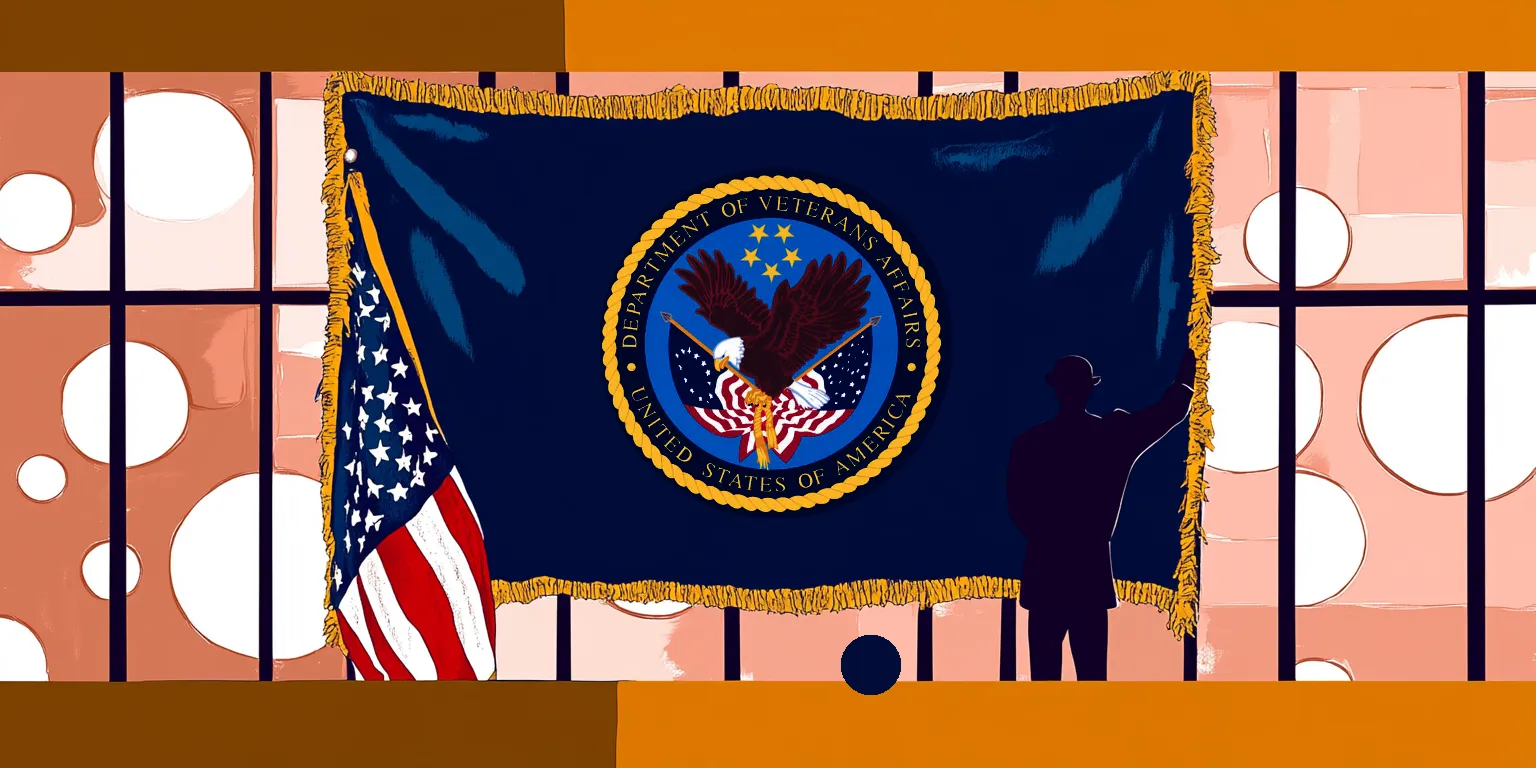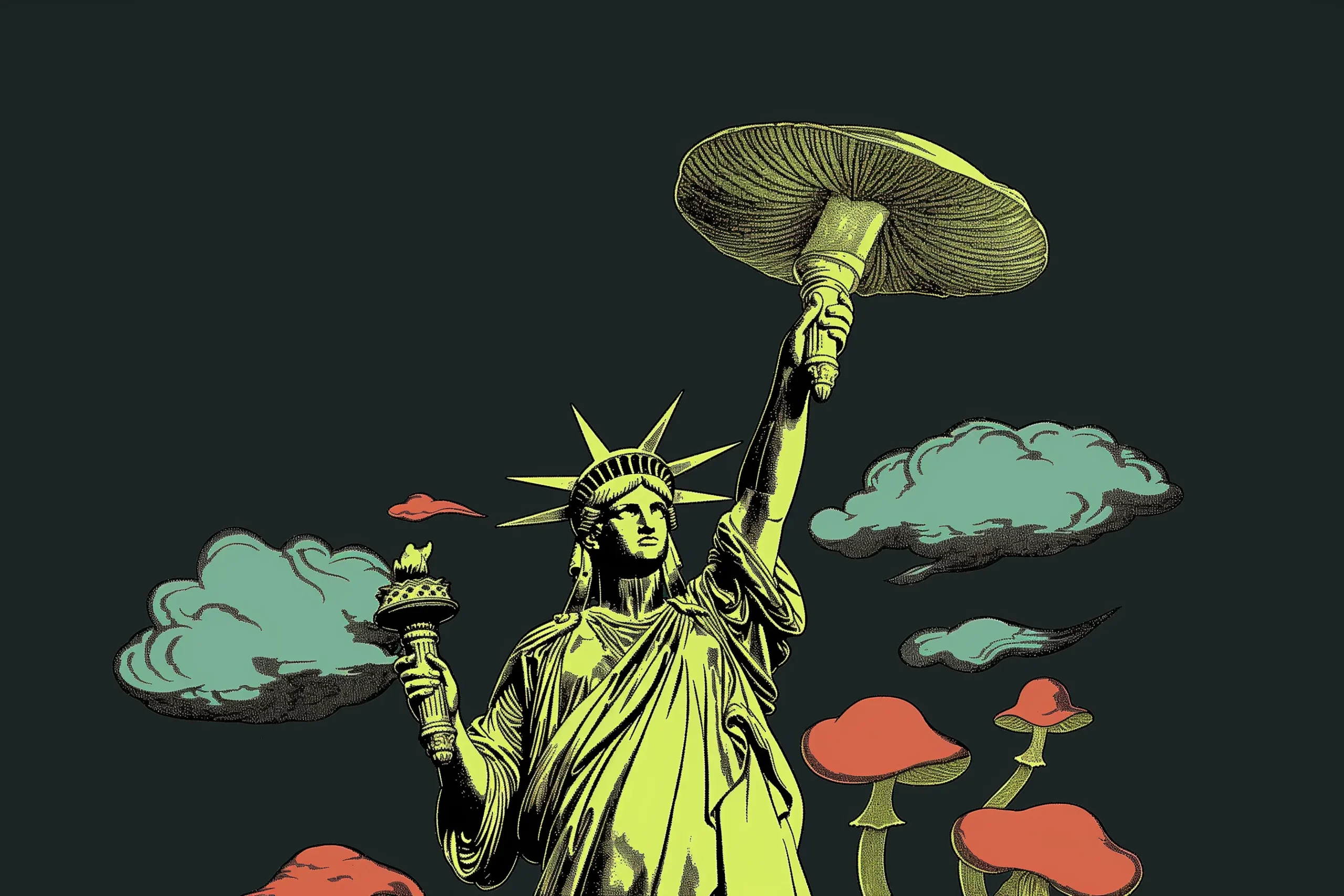This week’s Psychedelic News Roundup touches on an interesting new study exploring the synergetic potential of psilocybin used in conjunction with common ADHD medications like Adderall. Other news includes a mass influx of individuals traveling to Oregon in search of psychedelic healing and new insights into the evolutionary origins of psilocybin.
Combining Psilocybin and ADHD Medication Shows Promise in Enhancing Mindfulness

In a study published by Frontier on microdosing psilocybin and ADHD, researchers found that combining traditional ADHD medication like Adderall, Ritalin, and Concerta with psilocybin mushrooms led to significant improvements in mindfulness among participants. Published in the Frontiers in Psychiatry Journal, the study involved 233 individuals, with most either diagnosed with ADHD or experiencing severe symptoms. Initial assessments revealed lower mindfulness levels in participants using ADHD medication. After four weeks of microdosing psilocybin, this difference diminished, showing similar mindfulness improvements in both medicated and non-medicated groups. The study’s findings suggest microdosing could potentially enhance treatment for ADHD, improving mindfulness and emotional stability without affecting personality traits like agreeableness and openness.
The study’s timing coincided with an ongoing shortage of ADHD medication, particularly Adderall, which began in fall 2022. Initially expected to be resolved within a few months, the shortage has persisted into August 2023, primarily due to a manufacturing delay and an unprecedented increase in U.S.-based stimulant medication prescriptions. This shortage highlights the potential role of alternative treatments like psychedelics when traditional pharmaceutical options are unavailable.
Beyond ADHD, researchers are also exploring the effects of psilocybin on other mental health conditions. A recent study titled Psilocybin desynchronizes brain networks focuses on psilocybin’s impact on the brain’s default mode network (DMN), which is associated with self-perception. Findings indicate significant psilocybin-driven desynchronization in the DMN. This desynchronization is thought to contribute to psilocybin’s antidepressant and pro-plasticity effects, offering promising avenues for treating various mental health conditions beyond ADHD. (1)
Keep Up with Uncensored Psychedelic Trends
Join our newsletter at Psychedelics Uncensored.
We respect and protect your privacy. By subscribing your info will be subject to our privacy policy . Unsubscribe easily at any time
Exploring the Evolutionary Origins of Psychedelics and Their Impact on Human Health

In his article published in TIME, Noah Whiteman, a professor at the University of California, Berkeley, delves into the evolutionary origins of natural chemicals like psychedelics and their dual roles as both potential treatments and harmful substances. Whiteman highlights the “war of nature,” where organisms produce chemicals to enhance their survival, which humans have adapted for various uses, ranging from caffeine for stimulation to morphine for pain relief. Psychedelics like psilocybin, used by indigenous peoples for spiritual practices, are now being studied for treating mental health disorders. However, Whiteman emphasizes that these substances evolved independently of humans millions of years ago as natural defense mechanisms.
One aspect of Whiteman’s research involves understanding how animals like monarch butterflies have adapted to use plant toxins for their protection. The article discusses the evolution of natural psychedelics, such as DMT and psilocybin, which bind to serotonin receptors in the brain. These substances likely evolved as chemical defenses, evidenced by their bitter taste and potential neurotoxic effects, which deter herbivores. For example, magic mushrooms produce psilocybin, which turns blue and potentially disrupts the digestive tract when oxidized, indicating a defense mechanism.
Whiteman advocates for rigorous clinical trials to assess the safety and efficacy of psychedelics as medical treatments. He acknowledges their potential but cautions against viewing natural substances as inherently beneficial, citing the appeal-to-nature fallacy (an assumption that if something is natural, it is better). The article concludes with a reminder of the complex interplay between nature’s chemical defenses and human health, underscoring the need for careful study and understanding of these potent compounds. (2)
Oregon’s Legal Psilocybin Clinics Attract Hundreds, Mainly Out-of-State Visitors

Originally run by the Idaho Capital Sun, Oregon, the first state to legalize psilocybin use at licensed businesses, has seen hundreds of clients traveling from out-of-state to experience psychedelic medicine firsthand. According to a report by Grant Stringer, since the opening of the first licensed center in Eugene in June, there has been a notable influx of visitors, primarily for mental health treatments. Clinics like Omnia Group and Satya Therapeutics, both in Ashland, as well as The Journey Service Center in Portland, report that a significant majority of their clients are from other states, seeking treatment for chronic mental illnesses, like depression.
Keep Up with Psychedelic Trends
Get uncensored psychedelic news, events, and updates. Join Psychedelics Uncensored!
We respect and protect your privacy. By subscribing your info will be subject to our privacy policy . Unsubscribe easily at any time
The Oregon Health Authority regulates this new industry, licensing growers, clinics, and facilitators, and has so far licensed 17 service centers and over 540 industry workers. Despite the high costs, which range from $1,000 to $3,000 per session, there is immense interest in psilocybin therapy, leading to long waitlists at some centers. Clients like JC Harvey from Oklahoma have shared transformative experiences, attributing significant mental health improvements to their psilocybin sessions.
Facilitators like Susanne Ulvi have observed profoundly positive client changes, but note a significant financial barrier due to high session costs. This price tag is partly due to the state’s licensing fees, making the treatment inaccessible to many. Despite these challenges, clients report intense and rewarding experiences, with some describing it as a form of condensed therapy with lasting mental health benefits. The success of Oregon’s regulated psilocybin industry indicates a growing acceptance and demand for psychedelic-assisted therapies in mental health treatment. (3)
Kelowna’s Essence Wellness Faces Police Raid Over Psilocybin Sales

Coming to us from Oakbay News, Essence Wellness, a Kelowna, Canada-based store specializing in alternative medicine therapies, including psilocybin, was raided by the RCMP (Royal Canadian Mounted Police) on November 24, 2023. The store, which has been selling products containing psilocybin for the past five months, was targeted under the Controlled Drugs and Substances Act. Owner Danielle Vaughan expressed disappointment over the raid, which left employees and patrons dismayed.
The raid comes in the wake of similar actions by the Vancouver Police Department, which executed search warrants at three mushroom stores earlier in November, seizing controlled substances. Despite psilocybin’s status as an illicit drug in Canada, making its growth and sale illegal, the Vancouver shops have since reopened.
Vaughan advocates for a collaborative approach to address the needs of individuals who find relief in psilocybin products for various reasons, including mental health. She emphasizes the importance of public access to safe, regulated psilocybin products and hopes for a solution that balances public safety with the well-being of those seeking alternative therapies. Essence Wellness, currently closed due to the ongoing police investigation, plans to reopen in the coming days, continuing its mission to educate the public and destigmatize the use of psilocybin.
Study Explores the Emotional Impact of Psilocybin, Focusing on Shame and Guilt

Available via PsyArXiv Preprints, a prospective (not yet published) longitudinal study investigated the emotional effects of psilocybin, particularly focusing on the experiences of shame and guilt. Conducted through sequential web-based surveys, the study gathered data from 679 adults in naturalistic settings before and after psilocybin use. Most participants, primarily college-educated, white individuals from the United States with a history of psilocybin use, reported positive experiences. However, a significant number (68.2%) also reported acute feelings of shame or guilt.
The study aimed to characterize acute shame and guilt during psilocybin use, explore predictors of these emotions, and assess their impact on long-term well-being. Notably, participants’ ability to constructively work through feelings of shame and guilt predicted their well-being 2-4 weeks after psilocybin use. Furthermore, the study found a small but significant decrease in trait shame (chronic, internalized shame) maintained 2-3 months after use. However, a notable minority (29.8%) of participants experienced increased trait shame.
The findings underscore the complexity of psychedelic experiences, highlighting that challenging emotional states such as shame and guilt are common and can influence long-term psychological health. This research contributes to a deeper understanding of both the therapeutic potential and risks associated with psychedelic use, particularly concerning self-conscious emotions like shame and guilt. (5)
Stories like those featured this week highlight the rapidly growing body of research and evidence supporting the use of psychedelics in mental health. This is further underscored by the sheer number of individuals seeking psychedelic medicine in states like Oregon, often overwhelming the nascent industry. However, commercial and medicinal access to psychedelics remains limited, expensive, and controversial.
As we march towards legalization and wider cultural and legal acceptance of psychedelics, we must continue to push for new studies that can further explore the possible impact of these compounds on the human mind and body.(4)
Sources

1. Haijen, E., Hurks, P. P. M., & Kuypers, K. P. C. (2023). Trait mindfulness and personality characteristics in a microdosing ADHD sample: a naturalistic prospective survey study. Frontiers in Psychiatry, 14. https://doi.org/10.3389/fpsyt.2023.1233585
2. The Evolutionary Origins of Psychedelics. (2023, November 29). TIME. https://time.com/6340163/evolutionary-origins-psychedelics-essay/
3. Stringer, G., November 28, I. C. S., & 2023. (2023, November 28). Oregon’s legal psilocybin clinics draw hundreds – mostly from out of state. Idaho Capital Sun. https://idahocapitalsun.com/2023/11/28/oregons-legal-psilocybin-clinics-draw-hundreds-mostly-from-out-of-state/
4. Kelowna mushroom store owner speaks out after RCMP raid, seizure. (2023, November 25). Oak Bay News. https://www.oakbaynews.com/news/kelowna-mushroom-store-owner-speaks-out-after-rcmp-raid-seizure-7115001
5. Shame and Psilocybin, (2023). Osf.io. https://osf.io/preprints/psyarxiv/hm6jn/
This material is not intended as a replacement or substitute for any legal or medical advice. Always consult a medical professional about your health needs. Psychedelics are widely illegal in the United States, and readers should always be informed about local, state, and federal regulations regarding psychedelics or other drugs.

 David Connell
David Connell






 Ross Dillon
Ross Dillon 
